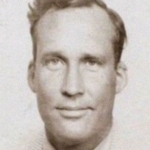All middle age invisible to us, all age
passed close enough behind to seize our napehairs
and whisper in a voice all thatch and smoke
some village-elder warning, some rasped-out
Remember me . . . Mute and grey in her city
uniform (stitch-lettered JUVENILE), the matron
just pointed us to our lockers, and went out.
‘What an old bag!’ ‘Got a butt on you, honey?’ ‘Listen,
did I get lost with these streetnames! Spruce
Street, water, or get this, VANderwater—’ Cautiously, coolly,
we lit up, crooking palms for the ashes. All fifteen
or under, all from Manhattan, we loitered bare
to the waist for the X-rays. In the whorling light
from one rainy window, our shapes were mere
outlines from floor to wall, opaque
as plater, white, or terra-cotta, black . . .
‘Names or numbers,’ a skinny white girl with pale blue eyes
shrugged her shoulders. ‘Why come here at all? You think little Susan
(thumb mockingly hooked at herself) needs working papers
to work in my uncle’s diner? If they’d let me off school
at noon now—that’s where the real tips are!’
And she smiled at our objections around her smoking
cigarette (I thought) like some museum mummy,
amber-fingered, fishhook collar bones—
‘What are you talking? Don’t you know the city
keeps like an eye we don’t get overworked?’
‘Yeah, and your Social Security number, that’s
for life, girl, that ain’t worth something to you?’
The skinny girl just cackled, goospimpled arms
huddled against her ribs. ‘Whadda you two, work
for the mayor? What’s this (swinging her locker key
with its scarred wooden number)—the key to the city?’
She meant last week, when they’d offered it
to some visiting queen. Even I snickered. I
was younger than most of them, homesick among the near-
women’s breasts and hair, even the familiar
girls’ cloakroom odors: perspiration, powder, decades
of menstrual fust—‘Well, I’m coming back in six months.’
This was one of the black girls, elbow swivelled
on pelvic sidethrust, finest hair—
filaments, finerimmed, sulky mouth. ‘She’ll be
sixteen, getting married,’ the girl next over
burst in eagerly, ‘He got a store job, still her folks
against it, they say stay in school. But every
afternoon—’ Distantly, the first girl listened to
her own story, only breaking in at the end: ‘I want a real
church wedding. Down here is just for the license, see?’
‘A license,’ said “little Susan,” sourly, ‘like for a job?’
‘His name is Harold Curtis,’ was all she answered, then ‘It too strong
for my parents. They see it too strong for them in the end.’
In our silence, the gutter slurred strangely. And for just one
moment, everyone breathless, the atmosphere grew
almost tender. But nobody knew what to say
except good luck, so we all went on smoking like chimneys
except the one murmur, of old and incurable
anger, ‘Listen. Listen. They get you coming and going.’
Now each girl tilts her face down, contemplating
her own unseen choices, real
tips, the solitary and common
square foot of imaginary chance . . . Outside, the rain
was letting up. The city, like a graph
of its own mountainous causes, climbed in a mist
across our window. And then the matron came, calling
our locker numbers, one by one, for the X-rays.
‘Jesus, it’s late.’ ‘Hey honey, I’m ready!’ ‘Where’d we change
at from the D Train?’ Through the clearing air on the far
side of City Hall Park, I could see a narrow street
and a streetsign: Broadway. Miles to the north
my street had a number, and Broadway was really broad.
In the concrete prows of islands, the innumerable old women
were sitting, lonely as soldiers, silent as . . .
‘What’s up, girl? Goose step on your grave?’
Another number. And now, the room darker, each girl
cast about for the cheering word, when ‘Listen,’ I suddenly
heard my own voice saying, ‘Guess what I saw coming down? A street
called Anne Street.’—‘So what?’—‘So my name is Anne.’
A pause, then ‘Hey kid, that’s really funny!’ They all
grinned, and one of the older girls gave my shoulder
a tolerant punch. I was one of the youngest, and as far
as I can remember, that was all that I said.



















Comment form: